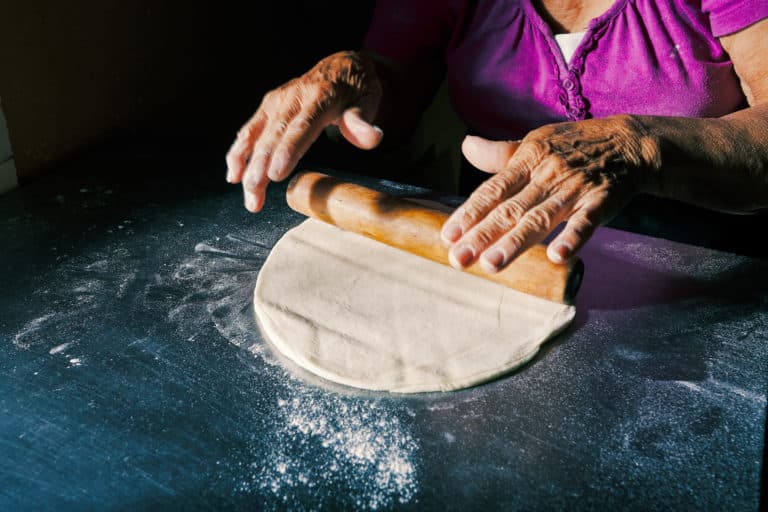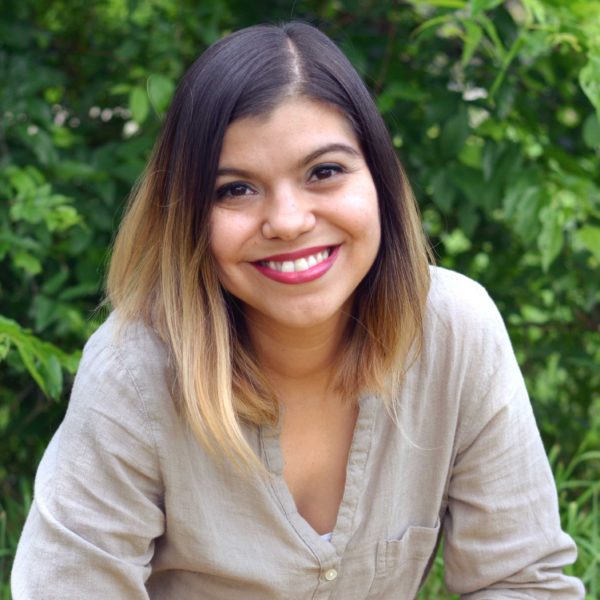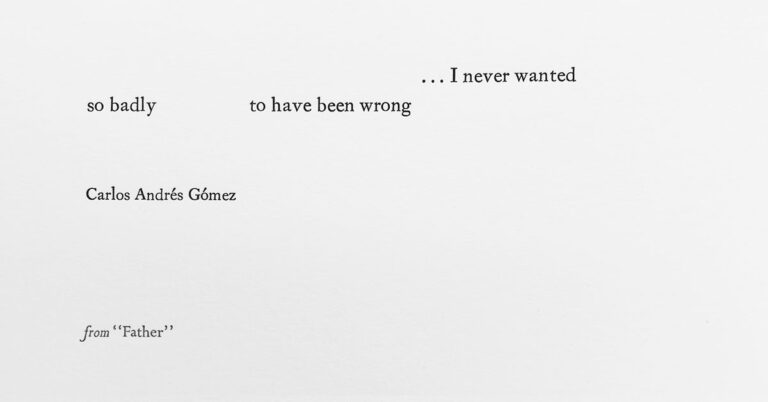
Image by Robert Gomez, © All Rights Reserved.
The Work of the Hands
The art of cleaning pinto beans is the hands’ lifelong journey to learn to see what the eyes cannot.
I swipe at a small mound of frijoles, spread them apart just wide enough to see small hardened mud-like pebbles that do not belong in this batch. My slender fingers know the jagged edges of clustered dark sand pebbles. Like a keeled over crane, my left hand cups around a hill of brown and beige spotted legumes. I push them into the colander. Some frijoles jounce back out like firecracker sparks, celebrating a sort of liberation. Most frijoles fall into the colander like a family ready for a reunion. I’m sloppy at it, impatient even.
Running in my abuela’s backyard at six years old, I tripped on a grill we used as a ramp to get onto our back porch. The front of my foot hit a cluster of hardened sand and I went face first into the grill. Before I could hit the metal, I stretched out my hands to cushion my face from making contact. As a result, my left hand was severely injured. I managed to slice through two layers of skin perfectly rounded on the palm. It left a flap of skin that could easily tear off.
I don’t remember how long it took for me to let out a cry, but I remember my abuela rushing out to pick me up from the ground, it was a levitation of sorts. She ran my hand under the water and applied hydrogen peroxide. Foam bubbled up and my hand looked like the Corpus Christi, Texas gulf shore we visited a few months before. It stung like several million jellyfish attacking my palm.
As she wrapped my hand in a thick tan Ace bandage, I wondered if I’d ever use my hand again. The drama at six years old is unparalleled. I wept for hours in pain and because of the idea I lodged in my mind that I would perhaps never have two functional hands ever again. To get my hand back to an operable state, my abuela had me help her clean frijoles. She thought it was the best therapy for an injured hand.
For the next several weeks, I helped her clean frijoles in the dead of summer. Each Sunday, we entertained friends and family and each week, my cupped hand began to heal.
“When you help someone else, you heal faster,” my abuela didn’t look up from her concentration as she rolled masa dough for tortillas. Her hands kneaded and rolled over the lump of the soft vanilla colored mass.
I later realized that her hands were always working in service to others. This is when I became aware of the healing impact that we have when we serve one another. This is how we heal.
An act of service is more than an act of kindness. Along with the labor of love comes the opportunity to share widely what the fruit of our patience has produced. Service is a language spoken with long-lasting change even if the results are not immediately seen. Service is a kind of wonder we navigate with our hands, whether by occupation or as an act of healing. The hands serve as instruments of our faith.
Faith is not about seeing; it’s about feeling. It’s about feeling for the inconsistencies when our eyes fail us. Like cleaning frijoles with an injured hand, healing comes because it is what is given in service for another. Hands serve as instruments of faith because they are agents of service.
Over the years, with much experience, it’s not the eyes which find the tiny pebbles married in the mound of beans, but the fingers which feel for the inconsistencies, almost like second nature. It’s as if the hands know what they were made for and they willingly take on the task in front of them.
When I am tempted to lose my faith, I can count on my hands to be the bridge between service and healing. With this healing comes the ability to believe, once again, that faith is the process by which we feel beyond what is set out in front of us. This bridge allows for our hands to become creative changemakers. Because they are used in service, they are used as tools to bridge the chasm between brokenness and peace. With these hands I worship, I heal, I serve.
This ability to use our hands as creative changemakers is more about how they serve than about what they produce. I couldn’t use my hands for much else when I was injured. I could use them only for small chores around the house like stirring menudo, adding ingredients to fideo, or cleaning frijoles. It was never about what I was producing but about how I was helping my abuela. It was greater than me. Now, it does not matter how many frijoles I can clean, it only matters that I can clean them well.
Service is about willingness, and more wildly about faith itself. I didn’t know if my hand would ever heal properly, but it did. I couldn’t see the end result of the healing, but I was able nearly perfect the art of limpiando frijoles. Frijoles, like fideo and tortillas, stretch a long way when it comes to feeding more than a few people. They are the staples in our kitchen when money runs low or when we seek out comfort foods that remind us of home. Profoundly similar to the loaves which fed the masses, these small frijoles will feed as many people as will fit at our modest kitchen table, and then some. When our hands engage in service to the community, they create unbelievable acts of resistance.
Like a communion of sorts, these frijoles will soak in room temperature water for another few hours before it’s time to place them on the stove to boil. This cleaning and soaking takes skill. Boiling the frijoles to perfection becomes another developed talent altogether. For now, I’m grateful I know how clean beans efficiently. I am thankful to serve.
I used to think that my service was only recognized if it was done in a church or a place where others were present to ensure that the work was carried out. I know now that in the quiet spaces where our hands toil unbeknownst to anyone — that is where our greatest blessing lies.
The work of the hands has never been free of difficulty. All service requires our hands to bud open. We cannot serve with closed fists. It’s with open hands that we welcome the stranger, open up to the light of a new day. With open hands we praise in church, we offer help in community, we wash off the day and welcome a new one.
Whether we are cleaning frijoles or are helping at the local food pantry, our hands serve as an instrument to bring about incredible change. We can also bring about an unspeakable peace. The world needs more labor and toil with our hands wide open, willing and ready.


Share your reflection